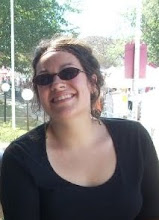This past week in Time there was a section with ten questions for Ron Paul. Among the typical questions about his opinions of the American democratic system, constitutionalism, and legalizing marijuana, I came across a question asking whether or not Mr. Paul believed the United States was truly a multiparty state. I was intrigued, because we have been reading Carrie Manning’s The Politics of Peace in Mozambique: Post-Conflict Democratization, which discusses the emergence of Mozambique’s multiparty and semi-presidential system. Ron Paul stated something to the effect of no, he did not believe that the U.S. was a multiparty state because both Democrats and Republicans subscribed to the same way of running things, with heavy corporate influence.
One similarity I noticed while reading was that the way in which Ron Paul had described America’s multiparty system as being strongly influenced by capitalism, while the rise of Mozambique’s multiparty system coincided with the transition from post-colonial socialism to democratic elections, and thus capitalism. It seems, again, that capitalism and democracy do go hand in hand.
Manning discusses Mozambique’s foreign economic dependence also impacting the democratic system by stating that, “...more than 50 per cent of the budget [is] regularly financed by donors” (Manning 135). Furthermore, Mozambique’s shift to democracy (influenced by capitalism and market forces) indebted the country pretty substantially to the World Bank. What happened to Mozambique’s economic autonomy? Did socialism really provide any autonomy when the country was torn by civil war?
Another similarity I noticed was the relationship of the Prime Minister to the President. Here I would agree with the parallel Manning draws to the vice president in the U.S. , as both Frelimo and Renamo have opted to keep the position of president one with rather sprawling powers and entitlements, with the Prime Minister acting as an extension of the President. Perhaps both parties feel strongly that their members will hold the position, and in that case, it would be beneficial to keep the position strong.
However, I do wonder who it is that serves as a check or balance to the president? Who does the elected Mozambican president answer to? The possibility for unchecked power, I would say, is defiantly a downfall to the Mozambican system. In chapter 8 of Manning’s book, she discusses the broad reaching powers of the president, and also the possibility for the losing party to present grievances to the incumbent. Perhaps the evolving constitution of Mozambique acts as a parallel checks and balances found in the U.S.’s system? Manning states, “Formal electoral processes have been consistently accompanied or followed by parallel, informal processes of elite negotiation, which provide a safety valve for political dissatisfaction and partial substitute for formal power sharing” (Manning 134).
I suppose that while looking for similarities between the United States and Mozambique, one could regard these “elite” talks somewhat like what goes on in Washington D.C. when congressional sessions discuss U.S. policies, which I would argue are extremely elite. I certainly have never been included. To which I would quote Manning again: “Interestingly, this triad of Renamo, Frelimo, and international community also permits the continued exclusion of the population from playing a central role in the political process” (Manning 135). Yet another similarity.
I wouldn’t go so far as to say the only differences in the State’s brand of democracy, and the Mozambican brand are the titles put on political positions (Parliament vs. Congress? Prime Minster vs. Vice President?), but I would say that democracy with reliance on market forces looks the same, whichever country adopts it.
Manning, Carrie L. The Politics of Peace in Mozambique: Post-Conflict Democratization, 1992-2000. Westport: Praeger Publishers, 2002.
